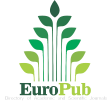Selective Trust in News in the Comparative Context
DOI:
https://doi.org/10.22032/dbt.55523Schlagworte:
trust in news, comparative media systems, quantitative analysis, press freedom, Human development indexAbstract
This article argues for an approach to the study of trust in news that focuses not only on average levels of trust but variation when it comes to the different sources of news in a given media market. Drawing on large-scale survey data collected by the Reuters Institute in 2021 (approximately 93,000 respondents in 46 media markets), this article shows how around three quarters of audiences are, in fact, selectively trusting toward some news outlets and distrusting toward others. It further demonstrates how this “selective trust in news” occurs systematically in some markets more so than others. While trust in news in general is positively correlated with rates of press freedom, brand-level trust is not, and some of the most highly trusted brands are in places with low press freedom. Brand-level trust, on the other hand, is at least in part a function of a country’s level of economic and social development. To the extent this higher level of trust may not always be warranted or deserved, this finding has important implications for independent news organizations and NGOs that seek to build greater skepticism and media literacy among the public.
Downloads
Veröffentlicht
Zitationsvorschlag
Ausgabe
Rubrik
Lizenz
Copyright (c) 2022 Benjamin Toff

Dieses Werk steht unter der Lizenz Creative Commons Namensnennung 4.0 International.








